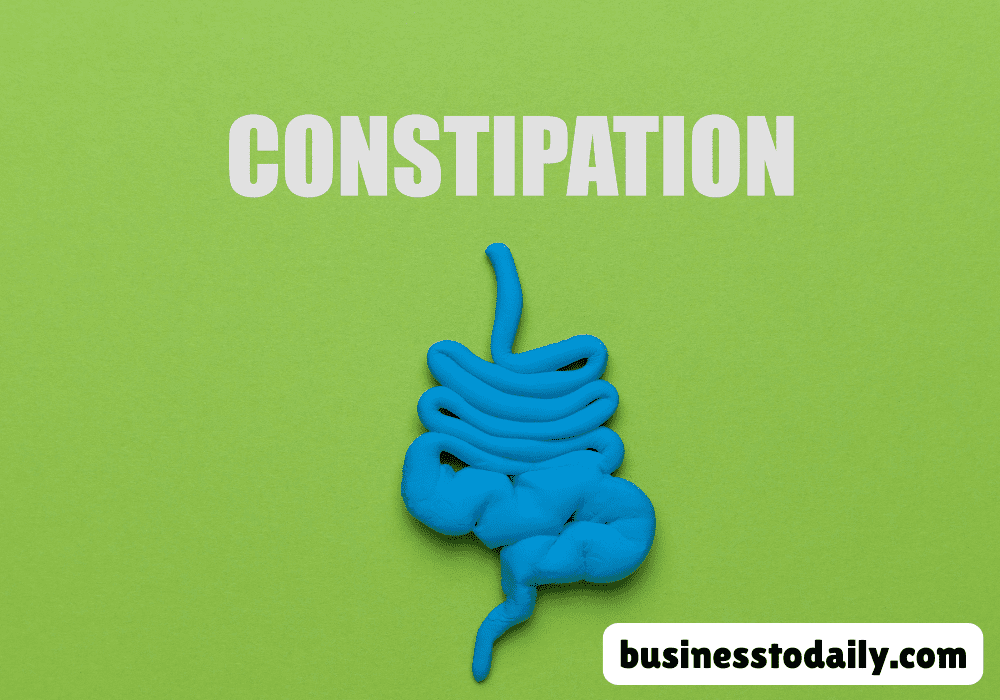Table of Contents
Constipation is a common issue in children, characterized by difficulty passing stools or infrequent bowel movements. It can cause discomfort, abdominal pain, and lead to frustration for both parents and children. For parents seeking effective ways to manage this condition, https://me-encantas.com/2020/02/12/aprende-a-combatir-el-estrenimiento-en-ninos offers valuable insights into addressing constipation in a healthy, natural way.
Constipation in children is more than just an occasional inconvenience; it can impact their overall well-being and behavior. In this article, we will explore the best ways to treat and prevent constipation in kids, provide tips on dietary changes, and outline habits that can promote regular bowel movements.
What Causes Constipation in Children?

Understanding the causes of constipation is essential when trying to solve the problem. Several factors can contribute to constipation in children, and https://me-encantas.com/2020/02/12/aprende-a-combatir-el-estrenimiento-en-ninos highlights these common causes:
Low Fiber Diet
A diet lacking in fiber is one of the primary reasons for constipation in children. Processed foods, sugary snacks, and insufficient intake of fruits, vegetables, and whole grains can slow down the digestive process and lead to hardened stools that are difficult to pass.
Dehydration
Water plays a crucial role in digestion. Insufficient water intake can cause stools to become dry and difficult to move through the intestines. Many children do not drink enough water throughout the day, which exacerbates the problem.
Lack of Physical Activity
Exercise helps stimulate bowel movements. Children who lead sedentary lifestyles may experience slower digestion, which can lead to constipation.
Changes in Routine
Children’s bowel movements can be disrupted by changes in their daily routine, such as starting school, going on a trip, or stressful events. This can cause irregularity in bowel habits, resulting in constipation.
Holding in Stool
Some children may intentionally avoid going to the bathroom, especially if they are not comfortable using public restrooms or if they are engaged in activities they do not want to interrupt. This habit can lead to stool buildup, making it harder and more painful to pass later.
Symptoms of Constipation in Children
Recognizing the symptoms of constipation early can help parents take action before the condition worsens. https://me-encantas.com/2020/02/12/aprende-a-combatir-el-estrenimiento-en-ninos points out the following symptoms to watch for:
- Fewer than three bowel movements per week
- Hard, dry, or large stools
- Pain or straining while trying to pass stools
- Abdominal discomfort or bloating
- Blood on the surface of the stool (from small tears in the anus)
- Avoiding bathroom breaks or exhibiting fear of going to the bathroom
If any of these symptoms persist, it’s important to intervene and take steps to relieve the child’s constipation.
Effective Remedies for Combating Constipation

Thankfully, there are several effective strategies for treating constipation in children, many of which involve simple lifestyle and dietary changes. https://me-encantas.com/2020/02/12/aprende-a-combatir-el-estrenimiento-en-ninos recommends the following:
Increase Fiber Intake
Fiber is crucial for regulating bowel movements. High-fiber foods such as fruits (apples, pears, berries), vegetables (broccoli, carrots, spinach), and whole grains (oatmeal, brown rice) can help soften stools and make them easier to pass. Fiber works by absorbing water and adding bulk to the stool, facilitating smooth movement through the intestines.
For younger children, the recommended daily fiber intake is 20-25 grams. Gradually incorporating more fiber into their diet can prevent constipation without causing digestive discomfort.
Stay Hydrated
Ensuring your child drinks enough water is essential for preventing constipation. Water helps keep stools soft and allows them to pass more easily through the intestines. Children should drink plenty of water throughout the day, and parents should encourage them to avoid sugary drinks or sodas, which can dehydrate the body further.
Encourage Physical Activity
Physical activity helps promote regular bowel movements. Exercise stimulates the intestines and improves overall digestion. Encourage your child to engage in physical activities such as running, playing sports, or even going for a walk to help keep their digestive system active and healthy.
Establish a Bathroom Routine
Getting your child used to a regular bathroom routine can help prevent constipation. Encourage them to go to the bathroom at the same time every day, preferably after meals when digestion is naturally stimulated. Creating a calm and comfortable bathroom environment can also help alleviate any anxiety or fear associated with using the toilet.
Natural Laxatives
Sometimes, it may be necessary to use natural laxatives to relieve constipation. Prunes, prune juice, or pears are gentle, effective natural remedies for constipation. These foods contain sorbitol, a natural sugar alcohol that softens stools and promotes bowel movements.
How to Prevent Constipation in Children
Preventing constipation is just as important as treating it. With simple lifestyle adjustments, parents can ensure their children have regular bowel movements. https://me-encantas.com/2020/02/12/aprende-a-combatir-el-estrenimiento-en-ninos provides several preventative strategies:
Balanced Diet with Plenty of Fiber
A balanced diet rich in fruits, vegetables, and whole grains is the key to preventing constipation. Avoid overly processed foods and sugary snacks that lack fiber and contribute to sluggish digestion. Offer your child fiber-rich meals regularly to keep their digestive system working smoothly.
Keep Hydration a Priority
Ensure your child drinks plenty of water throughout the day, especially if they are consuming fiber-rich foods. Hydration works hand in hand with fiber to maintain soft, easily passable stools.
Active Lifestyle

Encourage your child to stay physically active. This can include anything from playing outside, participating in sports, or dancing. Active children tend to have more regular bowel movements.
Create a Comfortable Bathroom Environment
Make sure your child feels comfortable using the bathroom. Set a positive and stress-free tone around bathroom breaks. If your child associates bathroom time with discomfort, they may avoid going, which can lead to further issues with constipation.
Regular Mealtimes
A consistent eating schedule can regulate the body’s natural rhythms and promote regular digestion. Ensure your child eats meals at similar times each day to help establish predictable bowel habits.
When to Seek Medical Help
While most cases of childhood constipation can be managed with dietary and lifestyle changes, there are times when medical intervention is necessary. If constipation persists for more than two weeks, or if your child experiences symptoms such as vomiting, severe abdominal pain, or weight loss, it’s important to seek professional medical advice.
A pediatrician can determine if there is an underlying medical condition contributing to the constipation or if more specific treatment is needed. https://me-encantas.com/2020/02/12/aprende-a-combatir-el-estrenimiento-en-ninos emphasizes the importance of not delaying medical care when a child’s condition does not improve.
FAQs about Constipation in Children
What are some home remedies to relieve constipation in children?
Increasing fiber intake, ensuring proper hydration, and encouraging physical activity are three of the most effective home remedies. Natural laxatives like prunes or prune juice can also help relieve constipation gently.
How much water should my child drink to prevent constipation?
Children should drink plenty of water daily, with younger kids needing about 1 to 1.5 liters per day. The amount can vary depending on the child’s age and activity level, but adequate hydration is key for softening stools.
Can stress cause constipation in children?
Yes, stress and emotional factors can affect digestion and lead to constipation. Addressing the source of stress and creating a comfortable bathroom environment can help reduce constipation caused by emotional stress.
Are there any foods to avoid when my child is constipated?
Avoid processed foods, excessive dairy, and sugary snacks as they can contribute to constipation. Focus instead on whole foods rich in fiber like fruits, vegetables, and whole grains.
When should I consult a doctor for my child’s constipation?
If your child’s constipation lasts longer than two weeks, or if they experience severe abdominal pain, vomiting, or blood in the stool, consult a pediatrician for further evaluation and treatment.
https://me-encantas.com/2020/02/12/aprende-a-combatir-el-estrenimiento-en-ninos offers valuable insights into managing and preventing constipation in children. By implementing these natural strategies and maintaining healthy habits, you can ensure your child enjoys regular bowel movements and a healthy digestive system.













